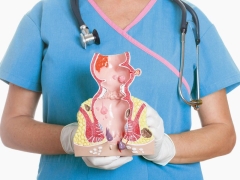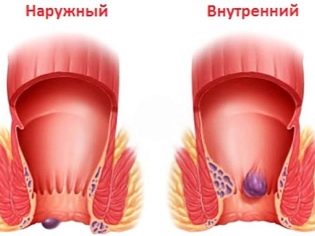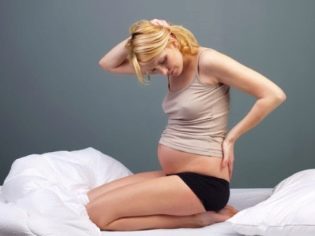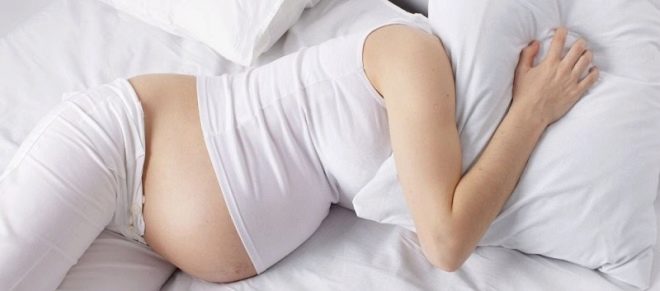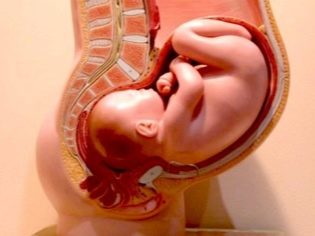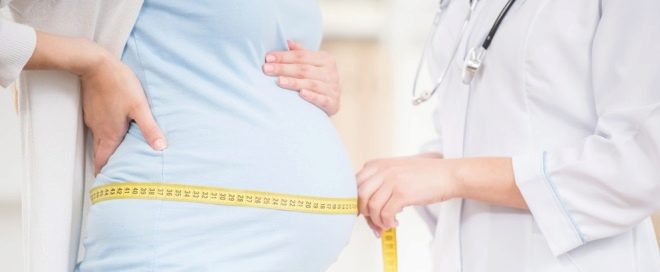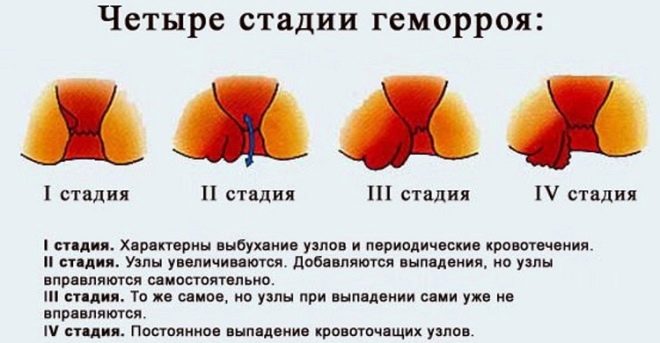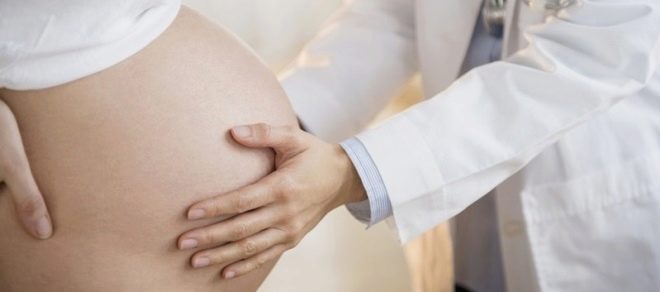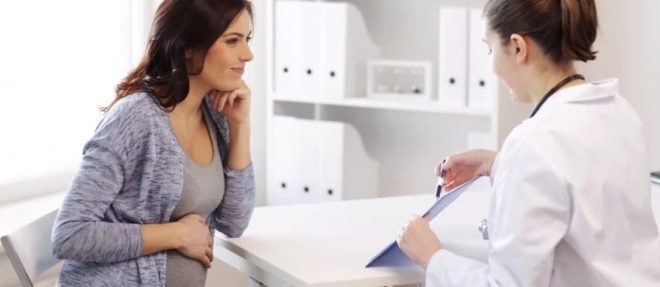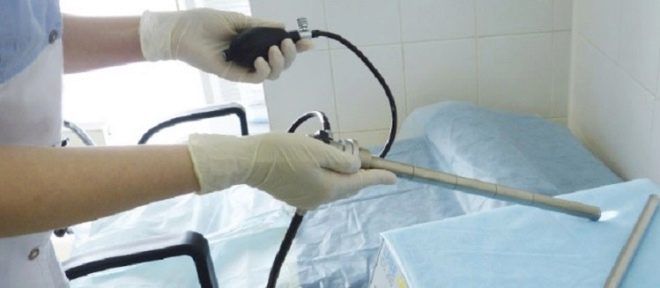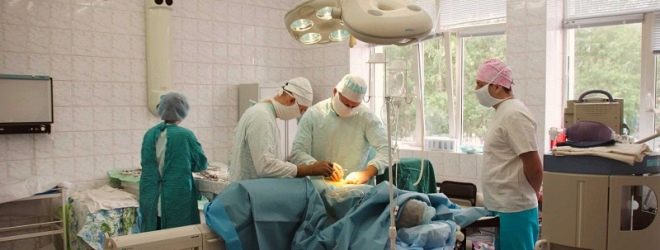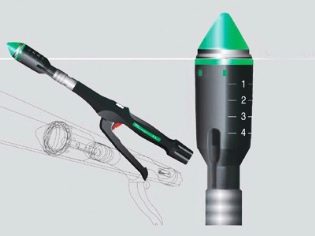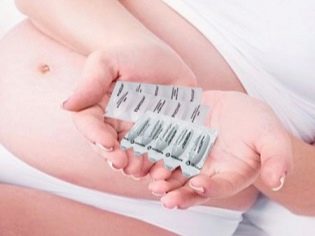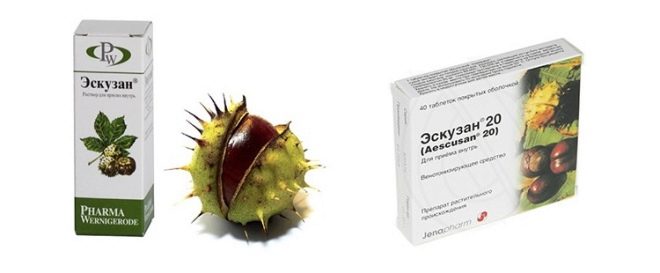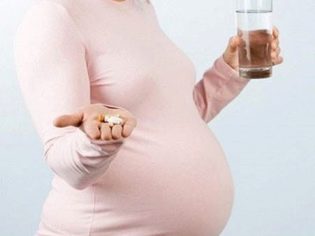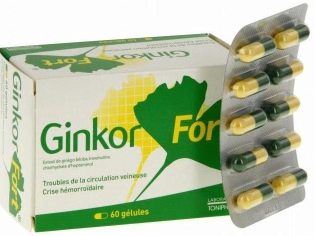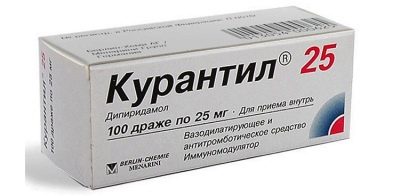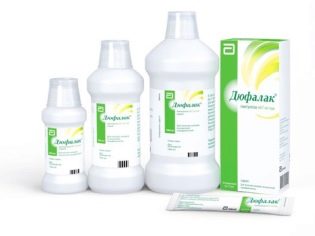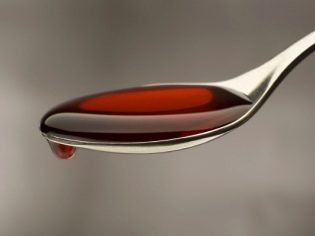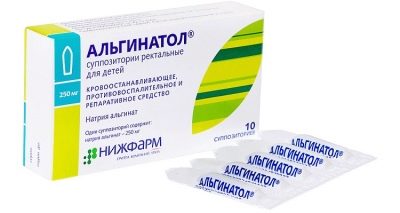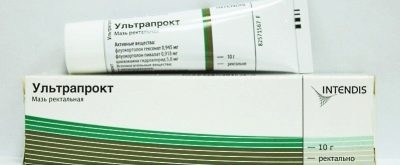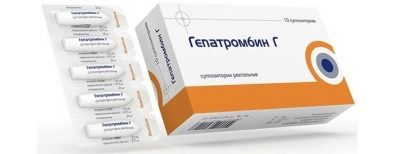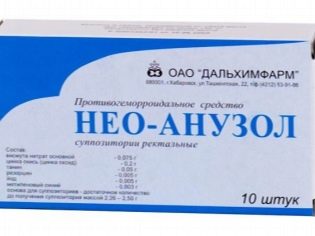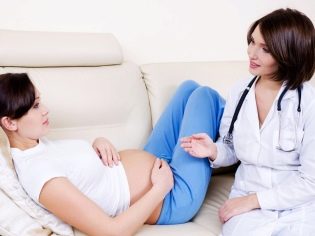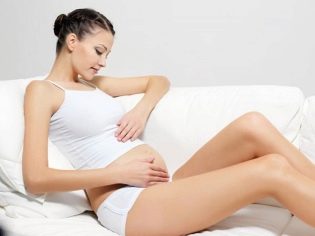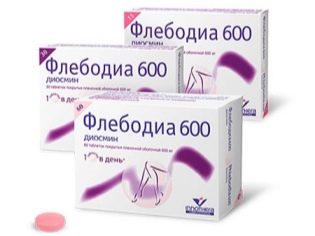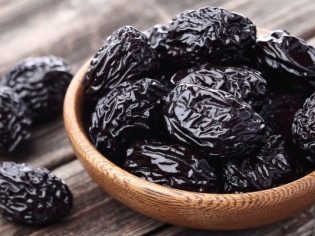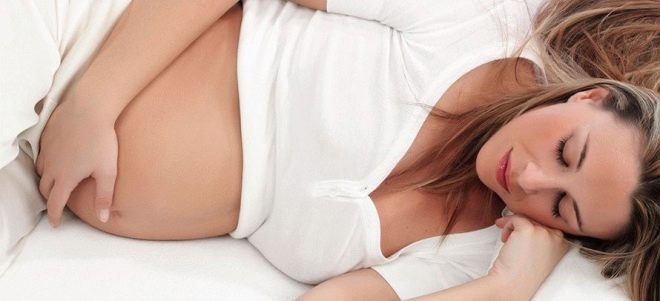Symptoms, treatment and prevention of hemorrhoids during pregnancy
Hemorrhoids are so delicate problems that women are embarrassed to talk about it out loud. In fact, hemorrhoids during pregnancy is a very frequent phenomenon, according to statistics, its symptoms are observed in about 70% of expectant mothers.
Few people seek qualified medical care. The rest are trying to find maximum information on the Internet, to figure out how to alleviate their condition. Do not be shy. About why hemorrhoids develops in expectant mothers and how to treat it, we will explain in this article.
What it is?
Around the rectum in humans are hemorrhoidal veins. With the load on them, with adverse effects from the outside or inside, the veins expand, thrombosis happens, the veins become inflamed and form hemorrhoids. This is hemorrhoids - a disease known for a long time. In the old days it was called "Pochechuy."
Hemorrhoids can be sudden, in most cases it develops gradually and for a long time. Medicine divides the disease into primary and secondary. What happens to pregnant women belongs to the category of primary hemorrhoids. Secondary is considered a violation of the blood supply in the pelvic organs and in the area of the venous plexuses in the rectum due to growing tumors, cirrhosis of the liver, severe pathologies of the heart and blood vessels.
An unpleasant disease that delivers a lot of trouble and greatly darkens the process of carrying a child, usually develops in women in the second half of pregnancy, when the uterus becomes large and heavy, and the pressure on the choroid plexus increases significantly.
In some cases, hemorrhoids make themselves felt after childbirth, the appearance of venous nodes in this situation provoke proper childbirth, attempts. Sometimes signs of hemorrhoids appear in the early stages.
Depending on how long the first unpleasant symptoms have occurred, the disease is divided into acute and chronic. In acute hemorrhoids, thrombosis of the nodes occurs. This is a painful condition, since a large number of nerve receptors are in the affected area.
With chronic hemorrhoids, there is no acute pain, because of this, women tend to underestimate the threat. From time to time, the venous nodes that fall outside the anus are already familiar, and the future mother finely adjusts them. But this is only apparent relative well-being. Chronic hemorrhoids are more dangerous and more cunning than the acute form.
Causes
The main reason why women get hemorrhoids in an “interesting” position is a growing fetus. In the second trimester, the pressure of the growing uterus on all internal organs of the abdominal cavity is greatly increased. At the end of the term of carrying a baby, hemorrhoids are a frequent companion of pregnant women, especially the problem becomes noticeable in recent weeks.
This does not exclude the early occurrence of the disease - in some pregnant women, signs of hemorrhoids appear at the very beginning. In this case, other reasons are considered.
Hormone progesterone, which performs an important “preserving” function of the child, has unpleasant side effects - it causes emotional instability, mood swings and constipation.In itself, private constipation is also a risk factor for the development of hemorrhoids.
In addition, the probability of developing the disease is affected by:
- The weight of a woman. Extra pounds and obesity contribute to the development of hemorrhoids.
- Heredity. If a close blood relative has a similar problem, then the probability that an unpleasant illness will make itself felt during pregnancy is great. Even if before that there were no manifestations of hemorrhoids.
- Lifestyle. If the expectant mother leads a sedentary lifestyle, her work is connected with a long sitting in one place, she does not walk, does not do gymnastics, a painful illness can manifest itself in the first trimester and in late terms. Excessive physical exertion can also cause inflammation and impaired blood flow in the hemorrhoidal veins. That is why hemorrhoids are often diagnosed in pregnant athletes.
- Psychological trouble. Future mothers who are under constant stress are more likely to suffer from hemorrhoids than women who remain calm.
- Diseases of the intestine and liver. Some pathologies, especially those associated with tumor processes, cause secondary hemorrhoids.
- Smoking during pregnancy. If the expectant mother cannot part with this harmful habit even in the process of carrying the baby, which also happens quite often, the risk of developing an unpleasant disease increases.
- Anal sex. Proctologists attach special importance to this item, since this kind of sexual relations is often practiced by spouses during the pregnancy of a woman. It is impossible, of course, to say that all sexual contacts in this way are definitely harmful. Anal sex should be gentle, partners should not forget about precautions. If the future mother has prerequisites for the development of hemorrhoids - excess weight, poor heredity, she is tormented by frequent constipation, then it is better to temporarily give up anal sexual experiments, especially in late periods.
- Multiple stool. This reason is considered one of the most common. Normally, the process of release of the intestine from the feces should not take more than five minutes, the process should take place in “one approach”. If a woman is sitting in the bathroom for a long time, if one moment of bowel movement does not bring relief, you have to wait for the second, make an effort, then the probability of developing the disease increases. This is due to the prolonged relaxation of the anal sphincter in anticipation of a new wave of peristalsis, with the result that the pressure in the rectum increases.
Symptoms and signs
About the beginning of the disease can "signal" specific sensations that are almost impossible to confuse with anything else. The woman has itching and discomfort, "burning" in the anus. Can observe pain, there are constipations.
The unpleasant sensations in this period are intensified when the expectant mother eats spicy or salty foodsand also it arises the need to increase physical activity, for example, she needs to go somewhere on foot.
If short hemorrhoidal bleeding occurs, at the initial stage, only after or at the time of a bowel movement, the woman feels some relief, the pressure on the veins temporarily decreases, the pain subsides. The blood that is excreted has a bright scarlet color, sometimes (infrequently) small blood clots can be seen in it.
Loss of knots is also not immediately apparent. At the very beginning of the disease, a woman will be able to feel the node going beyond the anus only at the time of attempts during bowel movements, later, when the disease progresses, the nodes can begin to fall out even with minor loads - when coughing or sneezing, when lifting small objects.
Dropped venous nodes initially set themselves up well, then they require manual reduction, in advanced cases they cannot be adjusted even manually.
Acute hemorrhoids have 3 stages of thrombosis:
- venous nodes become inflamed, slightly blue, a woman experiences pain during palpation;
- the inflammatory process extends to adjacent tissues;
- necrosis begins - the nodes turn black, die off.
Chronic disease has 4 stages:
- painful sensations are weak, internal knots are enlarged, but a woman may not even be aware of this, because they usually do not fall out, but are detected only during proctological examination;
- in the second stage, the loss of internal nodes becomes familiar, they are easily set back;
- at the third stage, manual reposition of the nodes is required, they no longer go inside themselves;
- the fourth stage implies the complete absence of the possibility to set the external node inward.
In the period of exacerbation, all signs and symptoms develop according to the type of acute hemorrhoids.
Danger
Hemorrhoids are dangerous for pregnant women. This fact does not cause doubts among specialists. The unpleasant and painful feelings that torment the future mother do not go unnoticed by the child either, because its well-being and development largely depends on the well-being and well-being of the mother.
At any stage of hemorrhoids there is a risk of thrombosis and necrosis of the venous nodes. These conditions will require mandatory surgical care.
The most common complication is paraproctitis or pararectal abscess. This disease is most often caused by the effect of Escherichia coli on the injured intestinal mucous membranes. Fistulas arise, and ulcers can break through anywhere, both outside and into the internal cavities, which creates the threat of intrauterine infection of the fetus and the occurrence of peritonitis.
Frequent anal bleeding with hemorrhoids is fraught with anemia. It is called so - hemorrhoidal anemia. In addition, there is always the risk of massive bleeding, which is dangerous for both the woman and her baby.
If during pregnancy not to get rid of this delicate problem, then during childbirth a woman will experience additional pain, increase the likelihood of complications of hemorrhoids, as well as the discovery of severe anal bleeding.
The most dangerous complications of hemorrhoids during pregnancy - pulmonary phlegmon, development of fecal incontinence, sepsis. Infringement of hemorrhoids, which is also not excluded, is accompanied by a strong intense pain syndrome.
Diagnostics
In order to prevent severe and even fatal complications, it is important to consult a doctor at the first sign of an unpleasant illness. It is best to go immediately to the reception of the proctologist, who can quickly and correctly assess the situation.
To begin with, a survey of the future mother. You will have to honestly tell about your food preferences, about how often constipation and other naughty problems occur. Do not be shy, because own health and the condition of the unborn child is much more important than a sense of false shame.
To assess the situation, a finger study of the anal area is used. On palpation, the doctor determines the presence and number of venous nodes, determines their character - external (external) or internal.
In the early period, the examination is carried out in a special chair, with which women are well acquainted with the visit to the gynecologist's office. In later periods, the proctologist examines a woman who has assumed a knee-elbow position, as well as lying on her side.
In doubtful cases, prescribed rectal ultrasound, as well as sigmoidoscopy - a method that allows to examine the mucous membranes of the rectum with a special device. It looks like a tube with a light bulb and an air supply system.
The intestine is slightly “inflated”, and then an eyepiece is inserted into the tube in order to carefully study the peculiarities of the problem “from the inside”.Radiographic diagnostic methods are used in proctology, but they are not used in relation to pregnant women, since the potential benefits of such a study do not exceed the harm caused by x-rays to a child growing in the womb.
In the diagnosis of hemorrhoids, it is important not to confuse it with some other similar diseases and conditions:
- anal fissures;
- prolapse of the rectum;
- polyps of the rectum;
- tumors of the rectum;
- villous adenoma.
Medical errors in the diagnosis of hemorrhoids are quite rare. Sometimes the doctor may not notice the accompanying pathologies, and with hemorrhoids, there are often associated problems, such as an anal fissure.
Treatment
You can fight an unpleasant disease in two ways - radically (surgically) and conservatively (medicines). Both methods are used to treat pregnant women, although experts try to resort to surgery only if the drugs did not help, if the woman cannot take them for individual reasons, if the degree and stage of hemorrhoids are not subject to conservative correction.
To the question of pregnant women when the doctor can prescribe surgery, the answer is quite simple - the first two stages of the disease do not require surgery, but the third and fourth stages of the disease may need operational correction. The fourth degree is always an indication for surgery.
Conservative methods
When choosing a treatment strategy, the specific period of pregnancy is of great importance. Hemorrhoids are much easier to treat if it manifests itself in late terms, in the third trimester.
During this period, the doctor has a wider choice of "tools" - he can prescribe many medicines. This is often not possible if hemorrhoids began in the first trimester, when the influence of drugs can affect the growth and development of the baby, on the tab of its internal organs. The choice of drugs in this case is significantly limited.
Therefore, the basis for the treatment of a delicate disease in the period of childbirth is the correction of the lifestyle of the future mother. She is assigned a special diet designed to prevent constipation.
Eat should be fractional, 5-6 times a day, in small portions, products that can soften the feces are introduced into the diet. At this stage, the main thing is not to overdo it and prevent the occurrence of diarrhea. Loose stools cause additional irritation of the anus, pain, itching, and swelling may increase.
The future mother is strictly forbidden spicy and salty foods, fried and rich in various spices and spices dishes.
Protein food - cottage cheese, fish, meat - should be reduced only to the minimum necessary for the development of the child, since an abundance of protein food contributes to constipation. All sweets, chocolate, sweet pastries, pastry made from yeast dough are banned.
In order to reduce the amount of intestinal gas, you should completely abandon the use of lemonade and other carbonated drinks. With the same purpose you should not eat white cabbage, peas and other legumes, as well as rye bread.
Diet is important not only during periods of exacerbations of hemorrhoids, but also on all other days, too, otherwise relapses are inevitable. In the diet must be raw vegetables and fruits, they are rich in fiber, which softens the feces and makes the process of defecation more gentle.
Compliance with special rules will require a visit to the toilet. The future mother will have to make an effort to learn how to defecate in one moment. If the fecal masses did not come out within five minutes or did not fully exit, it is better to leave the toilet and try again to empty the intestines after half an hour.
The future mother, if she has hemorrhoids with blood, should stop using toilet paper. She further annoys the anus.It is better to use a washout after a bowel movement.
Expectant mother to deal with constipation enemas are prescribed. They should be done with care so as not to harm the growing child.
Frequent use of enemas is an additional danger - leaching of beneficial microflora from the intestine, the occurrence of a dysbiosis. Therefore, an enema should be considered a measure of exceptional, if a diet rich in fiber, did not help. Microclysters have a significant advantage over conventional enemas, for example, the drug "Microlax».
The doctor will definitely advise the pregnant woman to go for a walk, morning exercises, active lifestyle. Among the recommendations may be a referral to the physiotherapy room, where the expectant mother can be given a course of magnetic therapy, EHF, laser therapy.
In the early stages, the doctor may give directions to LFK - physiotherapy exercises. Engage with the future mother will be a trained instructor.
A special place in the treatment will be given to antihemorrhoidal drugs, which will be described in more detail below.
Surgical methods
With surgery during pregnancy, doctors are not in a hurry. At first all the conservative methods will be tried, and only if relief has not come will the question of radical therapy be decided.
Hemorrhoidectomy - the most common operation to remove the venous nodes (another name is the Milligan-Morgan operation) and another method of surgical intervention to remove the nodes - Widehead operation - try not to carry out during pregnancy. The task of the doctor is to provide a maximum of maintenance therapy, and hemorrhoidectomy is transferred to a more appropriate time, to have surgery after delivery.
However, there are minor surgical procedures - these include sclerotherapy, infrared coagulation, latex ligation of hemorrhoids.
A new minimally invasive method - transanal hemorrhoidal dearterilization, better known as "Longo's operation" can be shown to pregnant women.
Modern methods guarantee quick and painless correction of hemorrhoids. When sclerotherapy, a special preparation is injected into the nodes, which causes gluing of their walls. Laser coagulation well helps with hemorrhoids of 1-2 degrees, the essence of the method is to treat the nodes with a large beam of infrared rays. When ligating a special latex ring is put on the knot, which prevents the knot from falling out.
Operation Longo involves the excision of part of the mucous membrane of the rectum and tightening the site, cutting it off from the blood vessels. The operation lasts under local anesthesia for no more than 10-15 minutes, and within a day the expectant mother can return to the usual way of life.
Preparations for the treatment of pregnancy
The choice of drugs with antihemorrhoidal properties on the shelves of modern pharmacies is large enough. They are available in the form of ointments, rectal suppositories, tablets. Some drugs have a narrow focus, some have a systemic effect.
Despite the large number of drugs, choose those that can be used during pregnancy, it is quite difficult, especially in the early stages. Therefore, we have prepared a list of drugs that are valid during pregnancy.
Systemic
"Detraleks"
This is a popular venotonic agent in coated tablets. The drug is used for the symptomatic treatment of hemorrhoids.
With the acute form of the disease, take 6 tablets per day (three in the morning and evening) for four days, and then three days - 4 tablets (in the morning and in the evening two).
Manufacturers do not indicate in the instructions that pregnancy is a contraindication, moreover, they argue that animal studies did not show a negative effect of the drug on the embryo. However, pregnant and nursing remedies are recommended with caution. due to lack of information on the effect of the drug on the human embryo - this effect was tested only on animals.
"Eskuzan"
This drug is made from horse chestnut, the product is available in the form of tablets, solution for systemic use and in the form of ointment and gel - for local use.
The tool tones the veins and prevents edema, and also has a pronounced anti-inflammatory effect. Apply the tool in any form in the first trimester of pregnancy is not recommended.
Tablets take 2-3 pieces two or three times a day. “Eskuzan” in drops to pregnant women is not recommended at all.
"Troxerutin"
This is another well-known venotonic, which is available in gel form and in capsule form under the trade name "Zentiva" and "Vramed."
The gel is applied to a gauze bandage and applied to the sore spot. After the swelling subsides, the drug is simply applied in a thin layer and is easily rubbed. Capsules are taken whole, along with a meal of 1 piece three times a day.
In the first trimester of pregnancy, the drug is prohibited to take, but after 14 weeks, in consultation with the doctor, the drug can be taken.
"Ginkor-forte"
The drug increases the tone of blood vessels, strengthens their walls. It is used in acute and chronic hemorrhoids. It reduces inflammation, reduces pain.
The usual dosage is 1-2 capsules twice a day. Contraindications for admission in the early stages has not but consultation with a doctor is required, because the drug can cause a strong allergic reaction.
"Curantil"
The drug prevents the formation of blood clots, improves the condition of blood vessels. This drug should not be taken with increased anal bleeding, but hemorrhoids, which flow without discharge of blood from the rectum, can be treated by adding this drug to the complex therapy.
The most secure is the reception of "Kurantila" first trimester. In the second and third, this should be done with caution and only with the permission of the attending physician.
"Duphalac"
It is a non-toxic lactulose-based laxative. This transparent viscous syrup will help the woman fight constipation and does not harm the baby growing in her womb. The only restriction is diabetes. If the expectant mother has high blood sugar or urine, from taking "DuphalacBetter to abstain.
With frequent constipation and hemorrhoidal symptoms, a woman can take a syrup 1 time per day, 15-30 ml in diluted or pure form with meals. Best of all - at breakfast. This will allow for normal natural bowel work.
Local
"Relief" (candles, ointment)
This drug is often prescribed to expectant mothers with hemorrhoids. The tool allows you to quickly deal with the main unpleasant symptoms, such as burning and pain, as well as itching in the anus.
Among the variety of forms of release should stop the choice on Relief Advance, insofar as Relief Ultra pregnant women are contraindicated due to hydrocortisone.
The most optimal options is the choice of ointment "Relief". The drug consists of natural components. The exact dosage will tell the doctor, it depends on the degree of lesion of the rectum. On the day it is allowed to take "Relief" up to 4 times.
"Natalsid" (candles)
These suppositories have a complex action aimed at stopping bleeding, wound healing, and reducing inflammation. In the rectum candles are introduced after emptying the intestines twice a day. This drug does not have a systemic effect.
The drug is allowed for pregnant women at any time, the average course of treatment is 1-2 weeks.
"Alginatol" (candles)
These suppositories, which are popular among pregnant women, are analogous to the Natalsid preparation described above. The tool helps to quickly remove the swelling, stop bleeding. If the anus is inflamed, the drug will have a moderate anti-inflammatory effect.
Candles are well tolerated, have no side effects. Up to 3-4 suppositories can be administered per day; the optimal dosage is 1-2 suppositories.
"Ultraprokt"
The drug is available in the form of ointment and rectal suppositories. The drug helps to cope with itching, reduces inflammation, has a local anesthetic effect. The drug acts quickly and for a long time, and it is very important if a woman has a very strong pain syndrome.
The tool can not be used by expectant mothers for a period of up to 13-14 weeks. In the second and third trimester, the drug can be used, but first you need to consult with your doctor.
Ointment is usually prescribed for two injections per day, and suppositories - no more than 2-3 suppositories per day. If the nodes fall out, then it is preferable to choose an ointment, it is abundantly lubricated with nodes and carefully set them inside. If there is no loss, then you can use candles.
"Hepatrombin G"
This drug absorbs blood clots well, regenerates affected tissues. On the counters of pharmacists, the tool is available in the form of ointment and rectal suppositories. The package includes a special ointment tip, which facilitates the introduction of the drug into the rectum.
After the procedure you should lie down a bit horizontally. Ointment is used externally twice a day, with the same frequency and use candles. In the first trimester, it is better to refrain from treatment with Hepatrombin, but in the second and third list of contraindications is minimal.
"Proktozan"
This tool is also available in two forms - rectal suppositories and ointment. The strength of the anti-inflammatory effects of the drug exceeds many similar antihemorrhoidal drugs.
German manufacturers indicate that their remedy is contraindicated during pregnancy due to insufficient evidence of the absence of harm to the child. But in the Russian practice, the drug is often used by pregnant women in the second and third trimester. Dosage must be determined by a doctor. The drug is taken with caution.
"Anuzol"
Candles and ointment with the same name are widely used in proctology. But you should know that pregnant women can only use the drug called "Anuzole Neo".
The difference is fundamental - “Anuzol” contains the extract of beladonna, a very poisonous plant that can harm both the fetus and the child who has already been born if the nursing mother uses the remedy. "Anuzol Neo" poisonous component does not contain. Depending on the severity of the manifestations of hemorrhoids, a woman is prescribed from 3 to 7 candles per day.
Other means
"Flebodia-600"
This drug from the discharge of flavonoids helps to restore the tone of the walls of blood vessels. It is especially effective for thrombosis of the inferior vena cava. For hemorrhoids, the remedy is prescribed often enough, but now nursing mothers should refrain from taking the medication, since manufacturers honestly admit that the effect of the drug on the infant has not been studied sufficiently.
"Flebodia" helps to quickly remove swelling, relieves pain. On the day, you can take 2-3 tablets with meals, drinking them down with a sufficient amount of clean drinking water. The course of treatment is about 7 days. In the treatment of this drug can and should use local funds - candles or ointment.
Folk remedies
Since hemorrhoids are known to mankind for a long time, not only official medicine has gained much experience and an arsenal of medicines for the treatment of this ailment.
Alternative medicine also has much to offer the expectant mother. However, it should be noted that all popular recipes should be applied only in consultation with the attending physician, because pregnancy is a crucial period when a woman is responsible not only for her life.
Treat hemorrhoids at home should be with the same approach that uses traditional medicine. We need a set of measures, and we should start with a review of the diet, the introduction of a special diet (it was mentioned above).On the table, the future mother suffering from this unpleasant disease should appear prunes and boiled beets, dried apricots, olive oil, bran.
Folk remedies that humanity has invented to cure hemorrhoids, should be chosen as carefully as medicines. It is a mistake to believe that decoctions and lotions are not capable of harming the expectant mother and her baby. With the wrong and inept approach, the harm from them can be even greater than from pharmaceutical drugs.
Candles and lotions made from potatoes are considered the safest. The most common raw tuber is washed, cleaned, rubbed on a grate, lightly squeezed gruel and wrapped in a gauze napkin. The resulting mass is applied to the sore spot, if we are talking about external hemorrhoids.
If the inflammatory process is located more deeply, then a small torpedo-shaped candle can be cut out from a raw potato, smeared with vegetable or sea buckthorn oil and introduced into the rectum overnight. It is not necessary to get it, in the morning during a bowel movement, the potato candle will leave the intestines itself.
A real helper in the home treatment of hemorrhoids in pregnant women can be sea buckthorn oil. With burning and itching in the anus, they smear the affected places. With deeper lesions with sea buckthorn oil can be done microclysters.
For constipation, you can drink two tablespoons every morning before breakfast, and when the venous nodes fall outside the anal sphincter, lubricate the nodes with this tool and carefully set them inwards. Sea buckthorn oil is also used for rectal tampons.
Alternative medicine also offers an effective drink that helps get rid of pain and stop anal bleeding. For him, take in equal quantities of rowan berries and beets, squeeze the juice, mixed. The resulting product should be taken in half a glass twice a day - in the morning and in the evening.
Not all popular recipes are equally good for women in an "interesting" position. So, advice to use celandine juice for the introduction into the rectum for future mothers is not acceptable, and for non-pregnant women, too, because the juice of this plant undiluted can cause quite severe burns of mucous membranes.
The old recipe with attachment of aspen leaves to the place of hemorrhoid prolapse does not hold water, since The effect of the leaves of this tree medicine is unknown. In any case, traditional medicine and evidence.
But the pregnant woman will obviously benefit the grandmother's recipe for a sweet dessert for tea. Through the grinder should turn prunes, a small amount of walnuts, add chopped dried apricots, all this to fill with a tablespoon of high-quality honey (if it is not allergic). Take this sweet can be two tablespoons twice a day. It will be useful in terms of the prevention of constipation, and to relieve the symptoms of hemorrhoids.
Reviews future moms
According to numerous reviews on women's forums on the Internet, the problem of hemorrhoids is one of the most burning issues for pregnant women.
Among the most effective remedies that women themselves recommend are Karavaeva Balsam, Heparin Ointment, Fleming Ointment. A lot of positive reviews about "Detraleks" and "Phlebodia."
At the very initial stage, when the first unpleasant sensations are beginning to manifest themselves, moms with experience recommend making microclysters with the juice of raw potatoes. At the starting stage, according to reviews, candles with sea buckthorn oil also help.
Many mothers note that subsequent pregnancies after gestation on the background of hemorrhoids also proceed with the exacerbation of an unpleasant delicate disease. Moreover, the symptoms appear earlier - if in the first pregnancy the pain and venous nodes appeared at the 29th week, then in the second they become aggravated at the 14-16th week of pregnancy.
A lot of those with hemorrhoids persist even after giving birth, although in most women the symptoms of this unpleasant disease still subside a few months after the baby is born.
Pregnant women rarely agree to the operation, and the doctors themselves do not like to give such appointments. but Reviews of Longo surgery during pregnancy are quite positive. Women who had a happy baby waiting time were clouded by the infringement of knots, bleeding, unmanaged knots, with the help of this procedure, they were able to get rid of an unpleasant disease before birth. Minus method - in its high cost.
Prevention
In pregnancy, hemorrhoids are always easier to prevent than to cure. Therefore, as soon as it becomes known that there will be a child, it is important to establish proper nutrition, an adequate motor mode, and ensure that the amount of fluid you drink is sufficient.
To avoid hemorrhoids will help simple gymnastics, which aims to maintain the normal tone of the anal sphincter and the normal blood supply to the lower veins. Here are some exercises:
- alternate swinging legs from lying and standing;
- torso in different directions;
- “Walking of a heron” - steps with bending of the legs at the knees;
- "Frog pose" - squats with dilution of the knees in different directions;
- tension buttocks for 15 seconds or more.
Pregnant at any time is useful several times a day for 10-15 minutes to take a horizontal position with a raised pelvis (putting a pillow under the buttocks) and raised legs. This is not only the prevention of hemorrhoids, but also the prevention of varicose veins.
The future mother should pay special attention to the hygiene of the genital organs and the anus. After defecation, it is advisable to wash without soap, so as not to overdry the delicate mucous membranes. Once a day, you can make warm sit-down trays with a decoction of pharmaceutical chamomile. It is important to ensure that the water is not too hot.
If all the precautions did not help and hemorrhoids did appear, you should not wait for a miracle and hope for the magical properties of potatoes and aspen leaves. Firstly you need to visit a doctor, and the method and means of treatment can be chosen together.
How to prevent hemorrhoids during pregnancy, see the following video.
